The 2025 festival season in Czechia is shaping up to be one of the most exciting in years, with international stars, iconic bands, and events planned across the country.
Whether you’re into heavy metal, dance music, punk rock or pop, this summer’s line-up has something for everyone.
Colours of Ostrava, taking place from July 16 to 19, will once again transform the city’s industrial heart into a musical playground. Punk legend Iggy Pop returns to the Czech Republic after 15 years, headlining alongside Sting and Shaggy, who will celebrate the 30th anniversary of the hit album Mr. Lover Lover. Also on the bill: U.S. chart-toppers The Chainsmokers, K-pop sensation DPR IAN, and French electronic duo Justice.
A month earlier, Rock for People (June 11–15) in Hradec Králové will deliver an unforgettable line-up for rock and metal fans. Avenged Sevenfold, Slipknot, and punk pioneers Sex Pistols lead the charge. They’ll be joined by rock heavyweights Linkin Park and Guns N’ Roses, featuring original members Axl Rose and Slash.
In the capital, Metronome Prague (June 19–21) will feature Canadian singer Alanis Morissette, known for hits like Ironic and Thank U. UK singer Rag’n’Bone Man, whose collaborations include Gorillaz and Calvin Harris, will also perform, while South African rave-rap duo Die Antwoord promise an electrifying show.
Heavy metal takes centre stage in Vizovice, where Masters of Rock (July 10–13) welcomes bands like Powerwolf, HammerFall, and Apocalyptica. Till Lindemann, the frontman of Rammstein, will perform his solo project.
Fans of electronic music should head to Beats for Love Ostrava (July 2–5), headlined by Dutch trance icon Armin van Buuren. Also featured are Australian DJ Timmy Trumpet and Belgian brothers Dimitri Vegas & Like Mike, staples of Tomorrowland.
For a more underground experience, Brutal Assault in Jaroměř (August 6–9) will once again bring metal fans together in the 18th-century Josefov Fortress. The line-up includes Canadian band 3 Inches of Blood and Texan black metal group ABSU.
Benátská! s Impulsem! (July 24–27) in Liberec will offer nostalgic performances by Dave Stewart of Eurythmics, performing with Vanessa Amorosi, and Liz Mitchell of Boney M, the voice behind many of the band’s biggest hits.
Finally, head south to Tábor for Mighty Sounds (June 27–29), where punk and ska fans can enjoy sets by California bands Lagwagon and Mad Caddies at the Čápův Dvůr airfield.
Would you like us to write about your business? Find out more
These beautiful color pics were taken by Simon K, who showed street scenes in Prague in 1987.
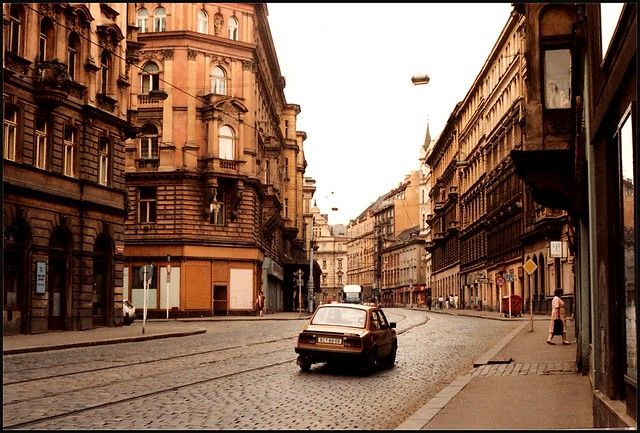
A busy day in Nové Město.
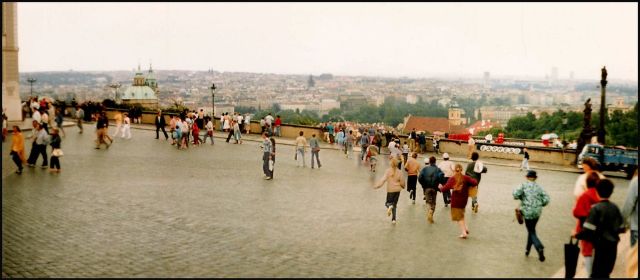
A coachload of students disgorges onto the plaza of Hradcány castle, with Prague city centre beyond
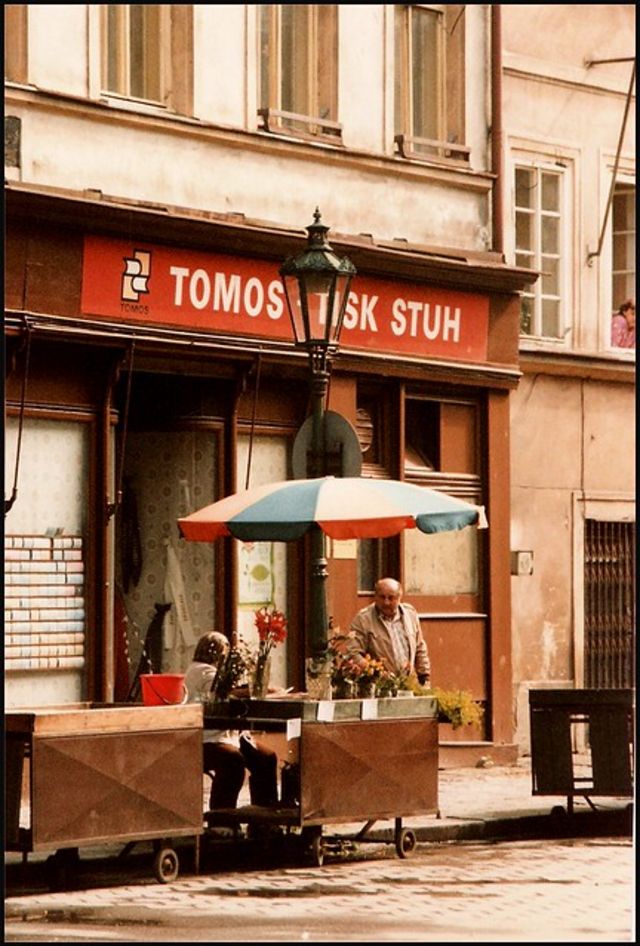
A flower stall in the Staré Město
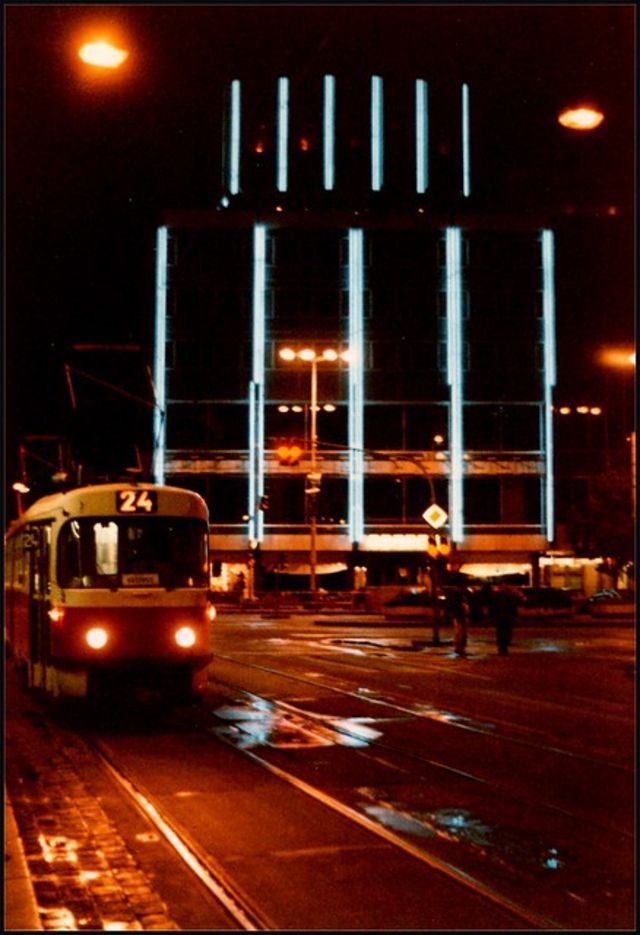
A night tram enters Václavské Námesti past the Dům Dětsky department store
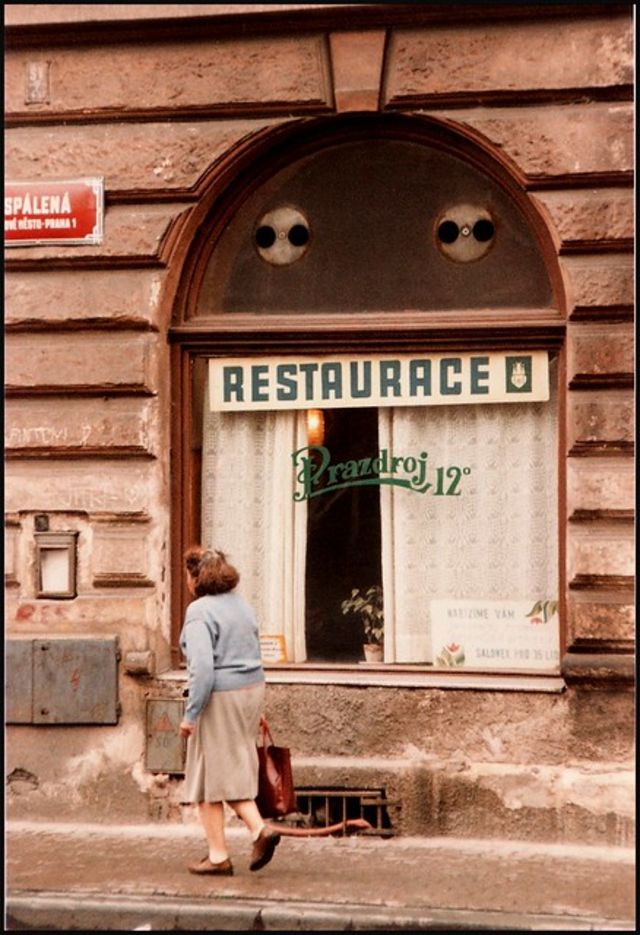
A restaurant in Nové Město
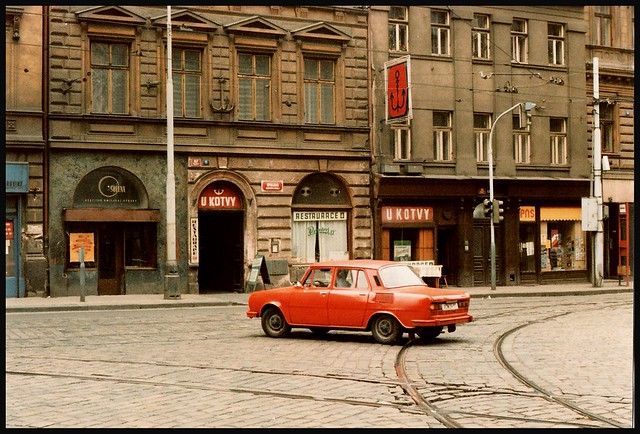
A Skôda turns on a sixpence in Nové Město
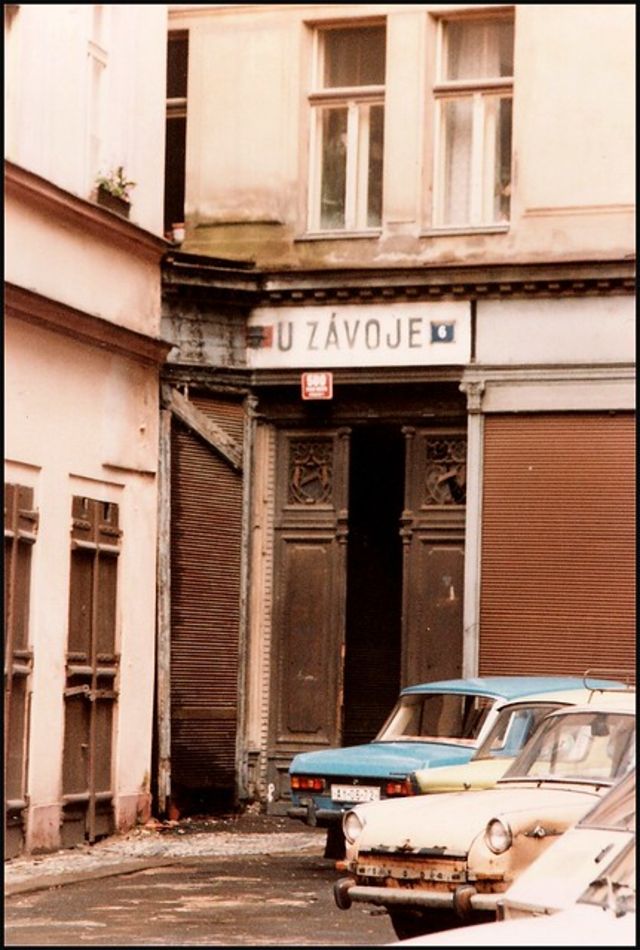
A small corner of the Old Town
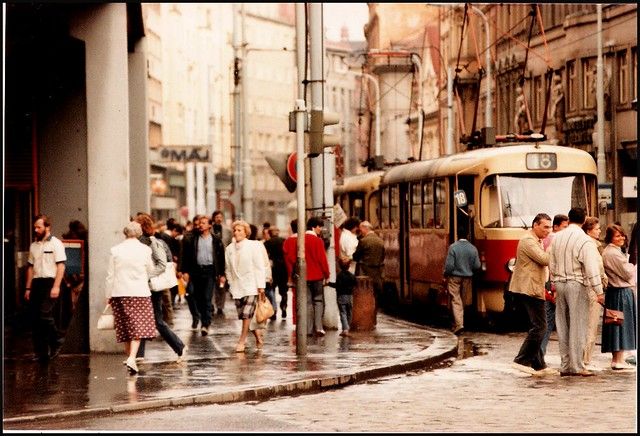
A tram inches along Spálená
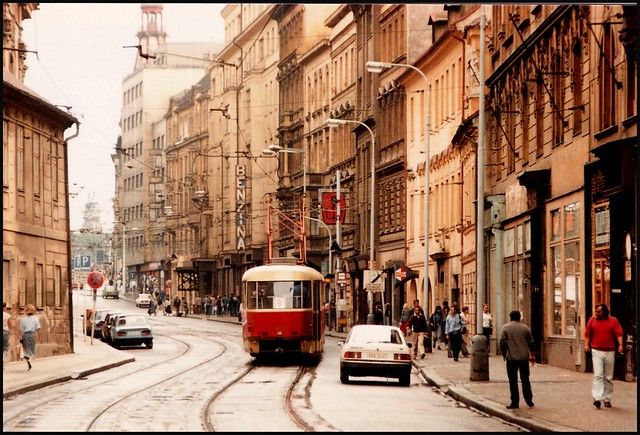
A tram travels through Spalena
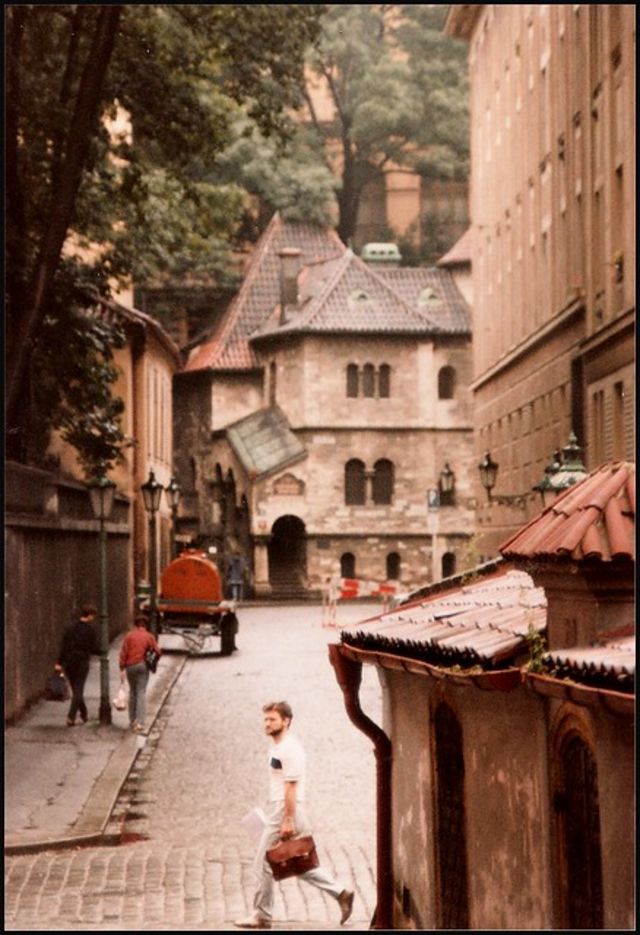
A back street in Josefov, the Jewish district
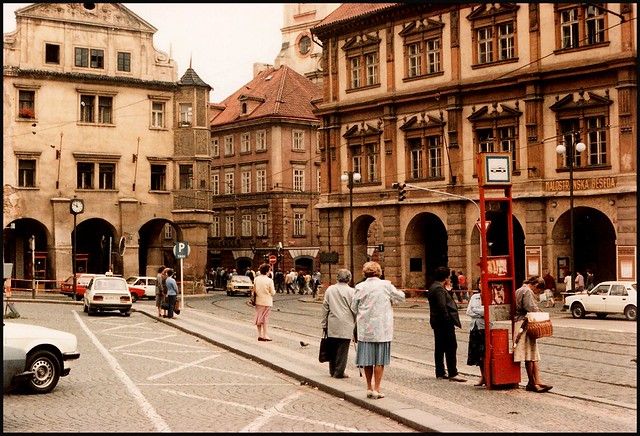
A tram stop in Maléstranskě Náměsti.
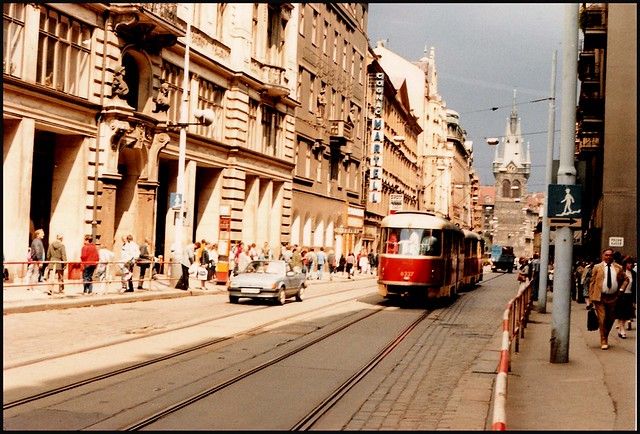
A tram trundles along Jindrisska
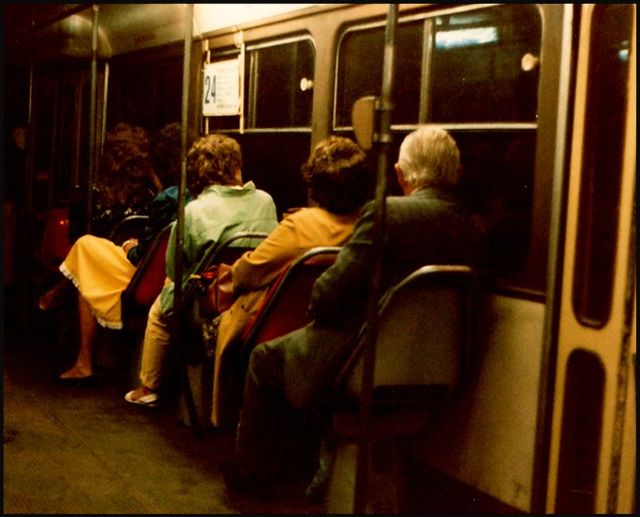
A tram trundles through the blackness of eastern Prague
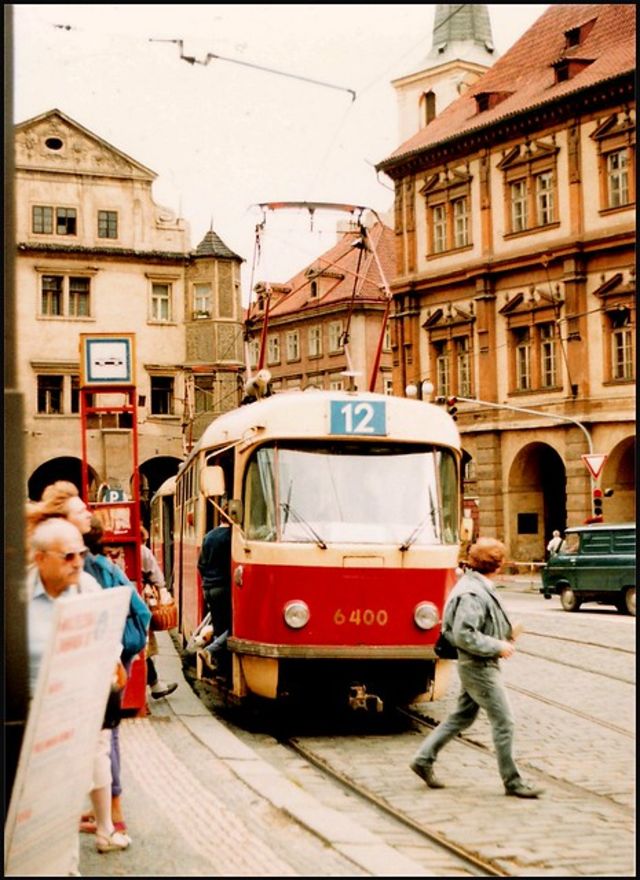
A tram stop in Maléstranskě Náměsti
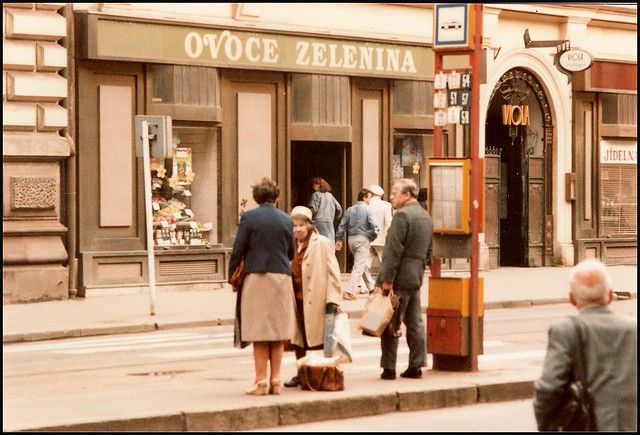
A tram stop in Nove Město
St. Martin’s Day, which Czechs celebrate on November 11, is a holiday of good food and drink. Autumn slowly alternates with winter, and it begins to snow.
In the past, the economic year was ending at this time, and the landowners were preparing a feast for their people as a form of thanks, when they were also paid out their wages. And what about today? Today, the feast of St. Martin is a great opportunity to bring a little joy to life!
Traditionally, fattened geese are roasted on 11 November, and the first bottles of young wine open at exactly 11:11 am. St. Martin wines are fresh and young, as they only have a few weeks to mature.
They are very clear and have a lower alcohol content. So join the celebrations, because it’s high time to taste what this year has brought.
Young wine in celebration of St. Martin
St. Martin wines are always the first wines of the new vintage. These are fresh and fruity wines, which have matured for only a few weeks, but during this time, they had enough to acquire their distinctive character.
For a wine to bear the St. Martin brand, it must be made in the Czech Republic from grapes of the varieties Müller Thurgau, early Roter Veltliner, Moravian Muscat, Blauer Portugieser, Svatovavřinecké (St. Laurent) and Zweigeltrebe and undergo an evaluation by an independent committee.
It blinds tastes the properties of the wine, such as appearance, aroma, taste, and overall impression of the wine. So if you buy wine with the St. Martin label, you can be sure that you will be getting quality young wine from South Moravia, Mělnicko or other areas in Central or Northern Bohemia.
St. Martin’s Day in restaurants
You can be sure that almost every restaurant around mid-November will be offering its visitors a special St. Martin’s Day menu. What does it feature? According to a tradition that has lasted for several centuries, geese were always roasted in the autumn, fresh cabbage was processed, and wine or beer was drunk.
And today’s restaurants and pubs remain faithful to these basic ingredients. Typically, you will be served liver pâté as an appetizer, followed by a strong broth with liver dumplings and noodles, which the chefs usually leave to simmer overnight, with the main course being roast goose with red or white cabbage and dumplings.
And for drinks? You can choose to pair your meal with a St. Martin wines, or you can select from the beer special. In recent years, breweries are trying to outdo themselves, competing on who will brew the best special for the St. Martin’s holiday table. Cheers!
Would you like us to write about your business? Find out more
At the close of trading on Friday, February 2, the Czech koruna weakened against the euro by 14 halers, reaching 24.97 crowns per euro, marking the lowest level since May 2022.
Senior Czech central banker Jan Frait said he was prepared to back at least a 50-basis-point cut next week and may favour an even larger move, raising the prospect of the bank discussing bolder monetary easing than market predictions.
Analysts highlight that the koruna’s decline is attributed to the overall instability in global financial markets and the news of a Czech economic recession.
This downward trend commenced at the end of November last year, accumulating a loss of 71 halers over two months.
It’s worth noting that the Czech crown reached its peak strength against the euro in July 2008, with an exchange rate of 22.86 crowns per euro.
Its lowest point was in April 1999 when one euro was equivalent to 38.46 crowns.
The Czech Republic has already provided Ukraine with 45 tonnes of humanitarian aid for the energy sector. This is said in a statement published on the website of the Ministry of Energy of Ukraine.
Ukrainian Deputy Minister of Energy Yaroslav Demchenkov briefed the Czech representatives on the current situation in the Ukrainian energy sector, as well as the progress of repair and restoration works in preparation for the next heating season.
“Ukraine has already received 12 cargoes of humanitarian aid from the Czech Republic, their total weight is about 45 tonnes, including current transformers, voltage transformers, passenger cars, and other equipment and supplies necessary for restoration work at the facilities that were subjected to Russian attacks,” the report says.
Special attention was paid to deepening cooperation in the renewable and nuclear energy sectors. The Czech side confirmed its interest in implementing projects related to the restoration and development of the Ukrainian energy sector, including in the field of wind and solar energy.
The meeting participants also discussed the development of a memorandum between the two countries, which would be a signal for business and private capital to participate in relevant joint projects.
In addition, the meeting participants confirmed their mutual interest in developing the cooperation in the hydrogen sector. In particular, they discussed joint studies of the gas transmission network corridor of Ukraine, Slovakia and the Czech Republic for the transportation of hydrogen, its use for industry and other consumers in these countries and, in the future, Germany.
The parties also focused on the prospects of cooperation in the nuclear industry and international cooperation to ensure nuclear and radiation safety.
As reported by Ukrinform, Minister of Foreign Affairs of the Czech Republic Jan Lipavský stated that the Czech Republic will support Ukraine on the path towards achieving peace, which is possible only on Ukrainian terms and principles of international law.
The Czech government has given its initial approval to a draft law concerning the use of digital identity verification, potentially replacing traditional paper documentation.
Digital identification will not replace physical IDs, but people will no longer have to carry them. The digital document will require a mobile phone app, to be developed by the Digital and Information Agency.
With this app, users can request various forms of identity verification, such as bank identity proof and other electronic identity validations. The app generates a unique code, which can be verified by relevant authorities, such as the police or the post office, using their respective reader apps.
According to the bill’s details, the implementation of this project is estimated to cost the state administration approximately CZK 500 million upon launch, with expected annual operational expenses of CZK 50 million.
The law assumes that the digital copy will have the same legal effect as the original document. It will not be possible to issue a digital copy without the existence of a physical document, and they will not contain any data beyond the physical document. Citizens can choose whether to prove their identity with a regular document or digitally.
All government agencies will be required to accept both physical and digital versions of the ID card. Nevertheless, it’s worth highlighting that digital documents will not be suitable for international travel; in such cases, a standard ID card will still be mandatory.
The law is expected to come into force on 1 January 2024, and the obligation to accept digital versions of ID cards will be phased in gradually, according to Bartos. From the beginning of the year, central civil service bodies should accept them, and from July, regional authorities.
In 2025, the obligation would be extended to all remaining administrative bodies, including embassies.
Vinobraní is a grape harvest festival traditionally celebrated in early fall throughout the Czech Republic.
On the occasion, towns and cities hold fairs with concerts, theatrical performances and, of course, tasting of burčák, a low-alcohol drink made from fermented grape must.
It is famous among the people for its light refreshing taste and useful, cleansing properties.
We have prepared a list of places where the biggest festivals will take place in Prague in 2023. The first of them will start already this week:
“Vinohradské vinobraní” on Jiřího z Poděbrad Square (Vinohradské vinobraní).
Burčák from ten different producers – this fact alone is enough to make you want to relax and unwind here after the end of the working week. In addition, guests can enjoy a wide range of natural farm delicacies and wines from all over the Czech Republic, theatrical performances and other entertainment for children, folk ensembles and modern bands.
- Where: Náměstí Jiřího z Poděbrad, Praha 3 (see map)
- When: September 8 and 9, from 10:00 to 21:00.
- Cost: free admission
- Festival program here
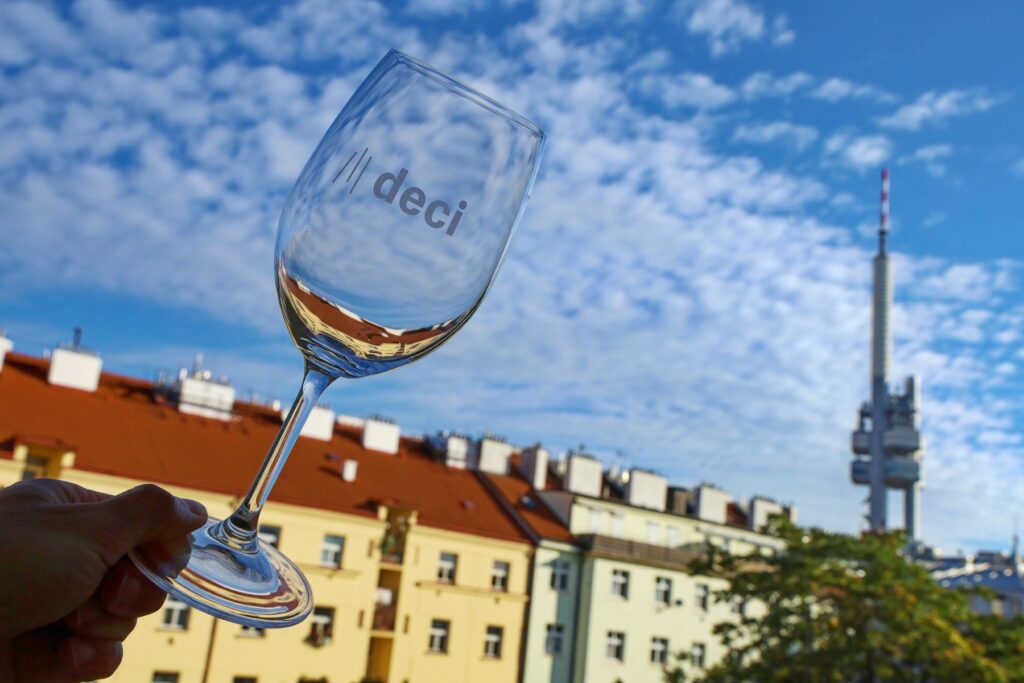
Vinobraní in Troja (Trojské vinobraní)
The festival will take place in the courtyard and garden of the luxurious Troja Castle. In addition to the traditional tents with wine, burčák and various delicacies, visitors will be treated to a rich cultural program. The organizers will set up a stage on the territory, where street theater, children’s choir, dance groups and many other artists will perform. At 14:00 and 16:00 there will be free tours of the castle.
- Where: Praha 7, Trojský zámek (see map)
- When: September 9, from 11:00 to 20:00.
- Entrance fee: 100 CZK
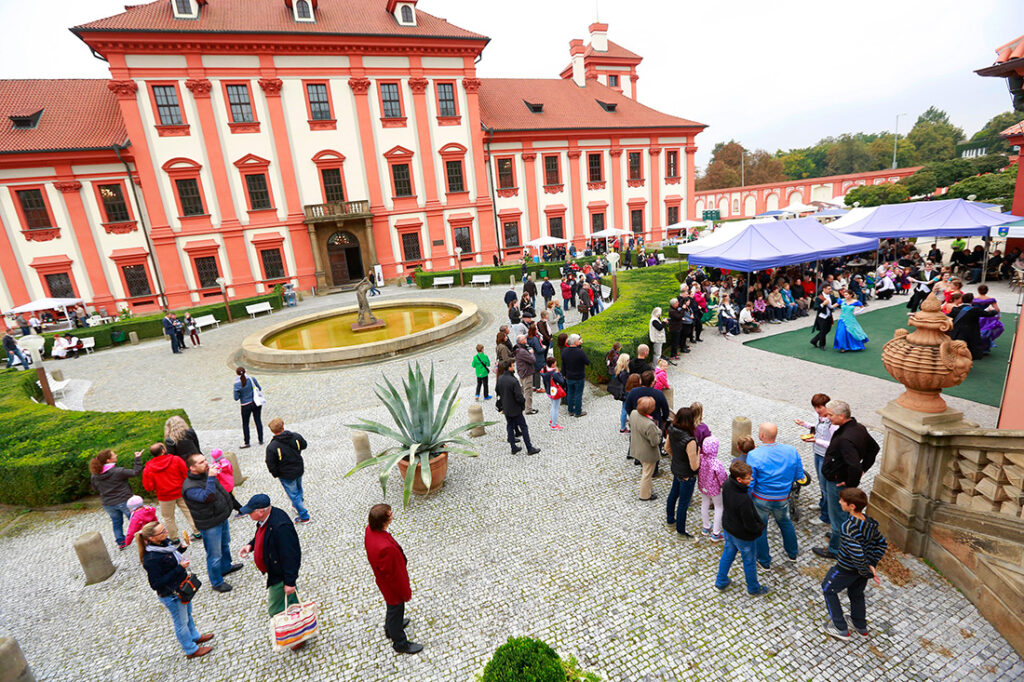
Vinobrani” on Prague Castle
The Wine and Burčák Festival in the Royal Garden of Prague Castle will last two days. In addition to quality Moravian wine, it will offer visitors a cultural program – performance of folklore groups, fencing demonstrations and much more.
- Where: Pražský hrad, Praha 1, Královská zahrada (see map)
- When: September 9 and 10, from 11:00 to 18:00
- Cost: free admission
- Program here
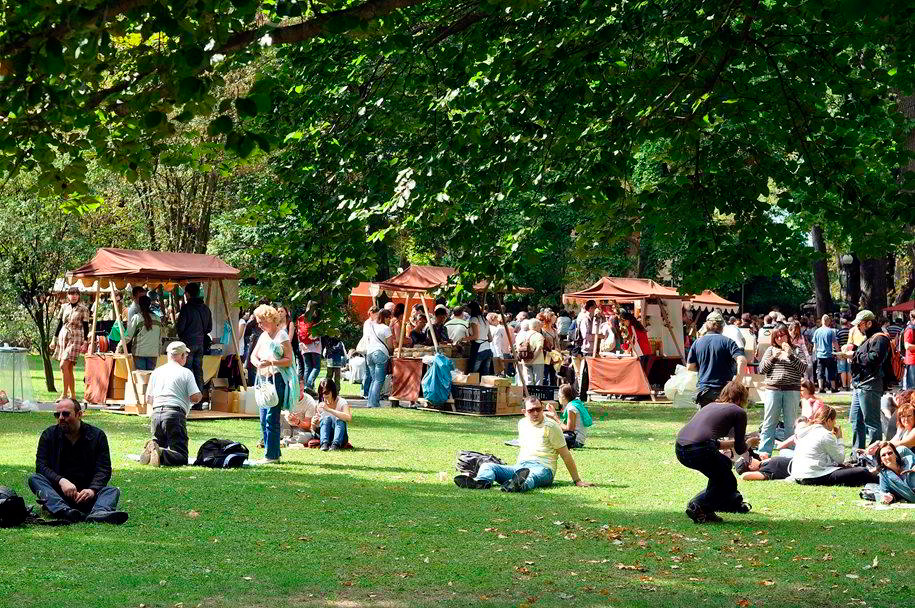
Vinobraní on Kampa Island (Malostranské vinobraní)
Several ensembles of traditional Moravian music and dance will perform in the park on Kampa Island. Guests will be able to taste Moravian wines, burchak, sausages, cheeses and other products of the region.
- Where: Ostrov Kampa, Praha 1 (see map)
- When: September 16, from 14:00 to 20:00
- Cost: free admission
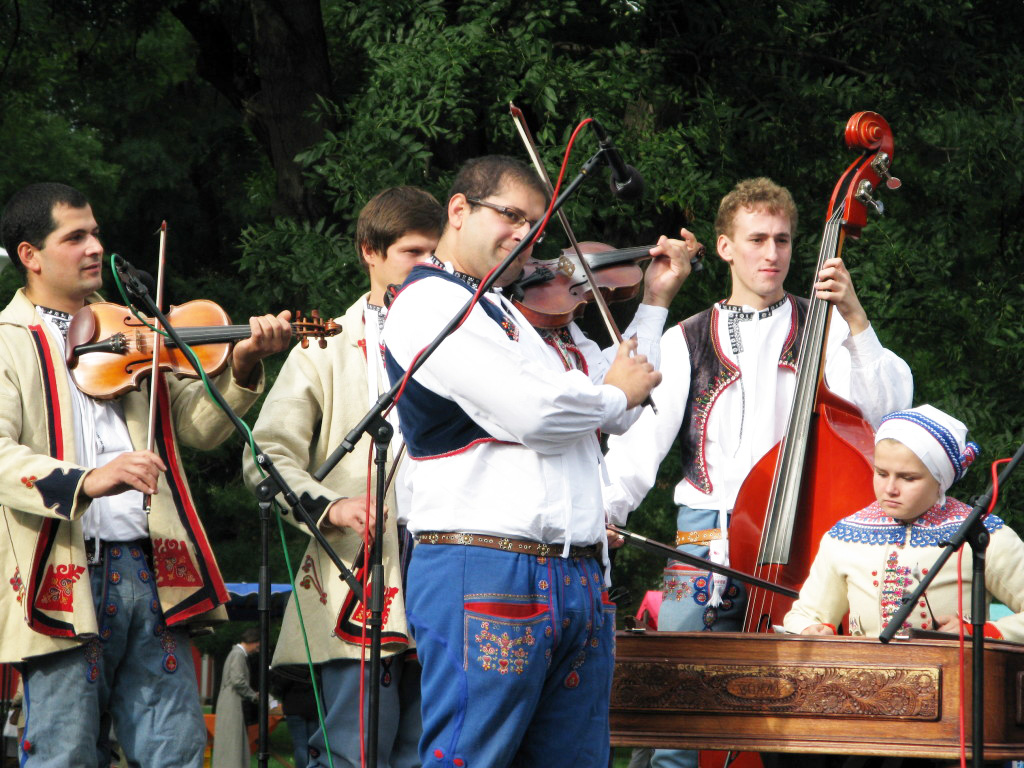
Vinobraní in the Botanical Garden (Vinobraní sv. Kláry)
The festival of delicious wine and good mood will last for two days. The Prague Botanical Garden is located in close proximity to Troja Castle and the Prague Zoo, so you can have a very busy weekend. A terrace with a great view will be opened for visitors and music and dance groups will organize performances.
- Where: Nádvorní 134, Praha 7 (see map)
- When: September 16 and 17, from 10:00 to 19:00.
- Cost: adults – 250 CZK, children – 150 CZK (includes a tour of the wine-making exposition and a visit to the Fata Morgana greenhouse).
“Vinobraní” on Namesti Miru (the first part of Vinobraní na Grébovce)
This celebration will take place in two stages. On Friday, September 22, the opening of the event will take place on Mira Square, and on Saturday the celebration will move to Grebovka Park (Havlíčkovy Gardens).
A stage will be set up on the square, where national music ensembles and modern popular groups will perform after the official part. Of course, fresh burchak and the best wine from all over the country will be waiting for the guests.
- Where: Náměstí Míru 20/600, Praha 2 (see map)
- When: September 22 from 14:00 to 21:00
- Cost: free admission
Vinobraní in Havlíčkovy Gardens (second part of Vinobraní na Grébovce)
The celebration in Havlíčkovy Gardens will offer visitors fresh burčák from grapes ripened right here – at the foot of Villa Grébovka. The local vineyard is known to Prague citizens for the high quality of its wines. Traders will set up dozens of stalls in the park with delicious food, wine and various handicrafts. The organizers have prepared an entertainment program for children and adults – sommelier performances, theatrical performances, contests, concerts and live medieval music.
- Where: Havlíčkovy sady 2188, Praha 2
- When: September 23 from 12:30 to 22:00
- Cost: free admission
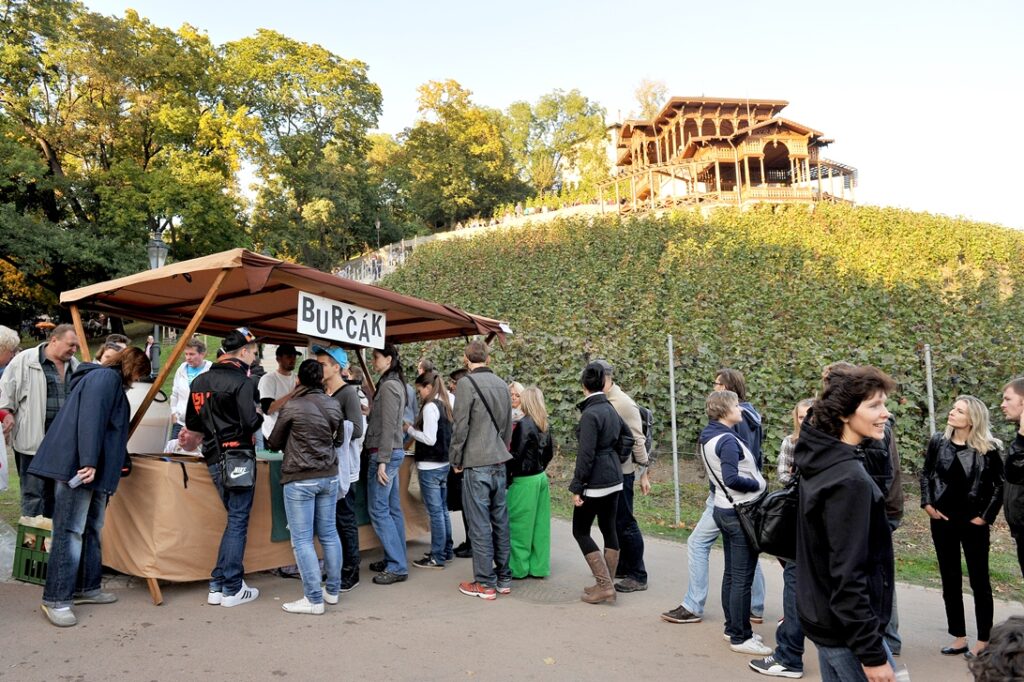
Vinohradské Vinobraní at Jiřího z Poděbrad Square
Presenting an array of burčák from ten distinct producers, this facet alone beckons individuals to unwind and indulge after the workweek’s culmination. Amid this, a plenitude of organic farm delights and Czech wines spanning the nation is poised to gratify visitors. Accompanying these pleasures are theatrical exhibitions, children’s amusements, folk ensembles, and contemporary musical performances.
- Where: Náměstí Jiřího z Poděbrad, Prague 3 (see map)
- When: September 8 and 9, 10:00 AM to 9:00 PM
- Admission: Free
Vinobraní at the Kunratické Castle (Kunratické vinobraní).
The thirteenth edition of the grape harvest festival at the Kunratice Castle, located in the Prague district of the same name, will last three days. Burčák and more than 150 varieties of wine will be brought here from all over the Czech Republic. There will also be something to eat – grilled meat, sausages, cheeses and many other goodies.
Theater performances, various sports and creative contests will be prepared for children. At the same time, the young guests will be supervised by specially trained staff, so parents will be able to relax, feel the atmosphere of the festival and enjoy a glass of wine.
- Where: Za parkem, Praha 4
- When: September 22, 23 and 24 (Friday – from 16:00 to 22:00; Saturday – from 10:00 to 22:00, Sunday – from 10:00 to 17:00);
- Cost: for one day – 150 CZK, for all three days – 200 CZK;
- Program here
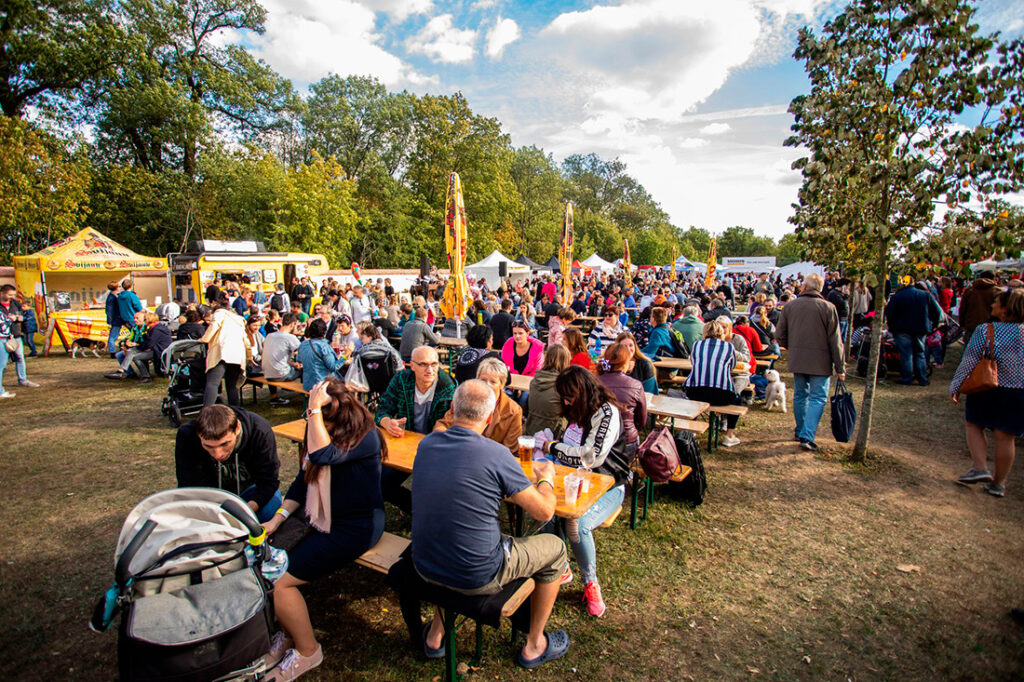
Svatováclavské vinobraní
Right on the territory of Prague Castle is one of the oldest and most beautiful vineyards in the Czech Republic, which originated here in the tenth century and bears the name of its founder, St. Wenceslas (Svatováclavská vinice). Two varieties of grapes are mainly grown here – Rhine Riesling and Pinot Noir, but there are dozens of other varieties planted along the observation avenue.
Stunning views of Prague, the opportunity to see an authentic hand pressed grape press in operation, burčák and wines from 20 of the best Czech producers, traditional music with dancing and much more. Guests will also be offered various treats to accompany the wine – grilled meats, pates, cheeses.
- Where: Svatováclavská vinice – Staré zámecké schody 251, Praha 1
- When: September 23 from 11:00 to 19:00
- Cost: this year the festival will be held in a tasting format. At the entrance, you will have to pay 300 CZK, for which you will receive a tasting glass and tokens for 10 tastings. If desired, the tokens can be purchased.
- Program here
Vinobraní na Náplavce
This tasting festival will take place by the river in the center of Prague. Tents with wine and burčák from Czech producers will be located on the Rašínovo nábřeží embankment (between the railway bridge and the Vyšehrad Rock).
The festival will also sell appetizers, perfectly matched with wine. The organizers have prepared live music and several different “wine” contests for the guests – corkscrew bottle-opening competition, blind tasting, determining the tones in the taste bouquet and others.
- Where: Náplavka, Rašínovo nábřeží 22, Praha 2
- When: September 30 and October 1 from 10:30 to 21:00.
- Cost: 100 CZK (price includes a glass tasting glass)
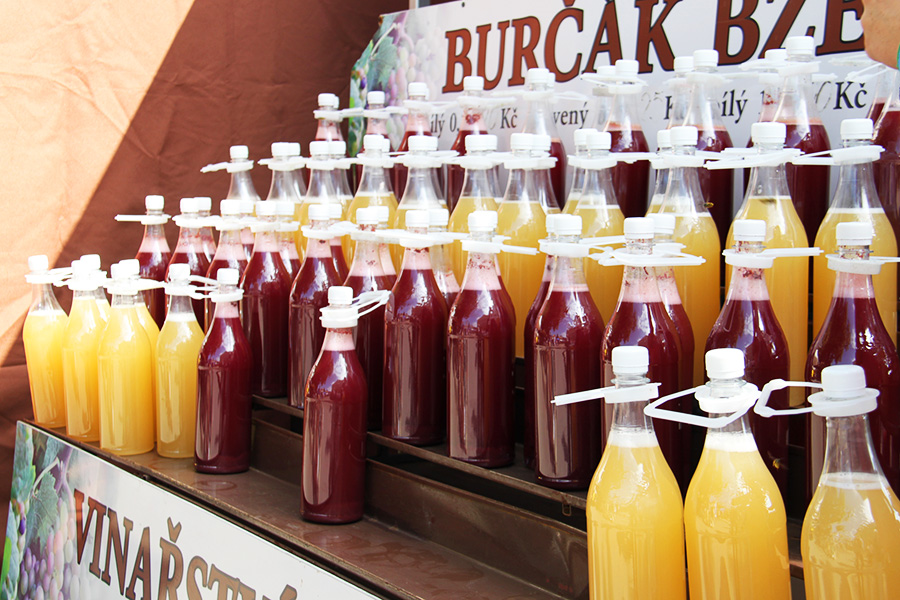
Harvest Festival at the Břevnovské Monastery (Břevnovské posvícení)
The festival will take place at the walls of the Břevnovské Monastery in the urban area of Prague 6. At the fair you will be able to taste and buy wine, burchak, fresh delicacies directly from farmers, as well as ready-made dishes – roasted goose with dumplings, roasted ox, potato pancakes, pancakes and other treats.
- Where: Markétská 2, Praha 6, Břevnovský klášter
- When: October 6, 7 and 8, from 12:00 to 19:00 in advance.
- Cost: free admission
Do you like cider? Taste more than 100 varieties at the Cider Festival on the weekend of September 16 and 17.
If you have only tasted “supermarket ciders” and remebrer them as alcoholic “soft drinks” full of chemicals, you’ll be pleasantly surprised.
The sixth edition of the festival will take place at the Radlická kulturní sportovna near Anděl metro station, where, in addition to craft ciders, cidras and lemonades by small and local manufacturers from all over the country and abroad, you can also look forward to good food and a fun accompanying program for the whole family.
The idea behind organizing this event is to bring together and support dedicated cider producers who often don’t make it beyond their own region and present their beverages to the broader public.
As you walk around the festival, you can chat with cider makers who love to share how they make their cider. You’ll learn about the steps behind each batch and even join in workshops to see the process up close.
A few words about cider’s history…
The first recorded reference to cider dates back to the Roman Empire. The story goes that the first Romans arriving in Britain in 55 B.C found the locals drinking a cider-like drink and swiftly gained a liking for it, bringing it back across the empire.
Following the discovery, cider soon spread across wider parts of Europe – historians have uncovered evidence of Germanic tribes enjoying the drink, as well as a number of monasteries across Europe, who would produce the drink not just for their personal pleasure but also to sell to the public.
Normans, who would go on to conquer England in 1066, also developed a fondness for cider and would go on to establish more apple orchards across the land, as well as cementing the word ‘cider’ into the English language…
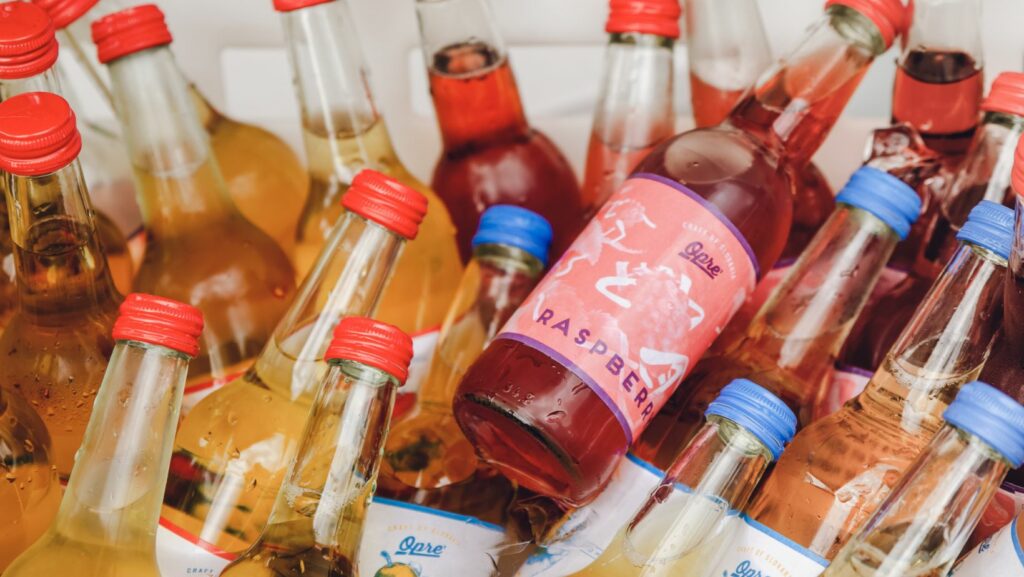
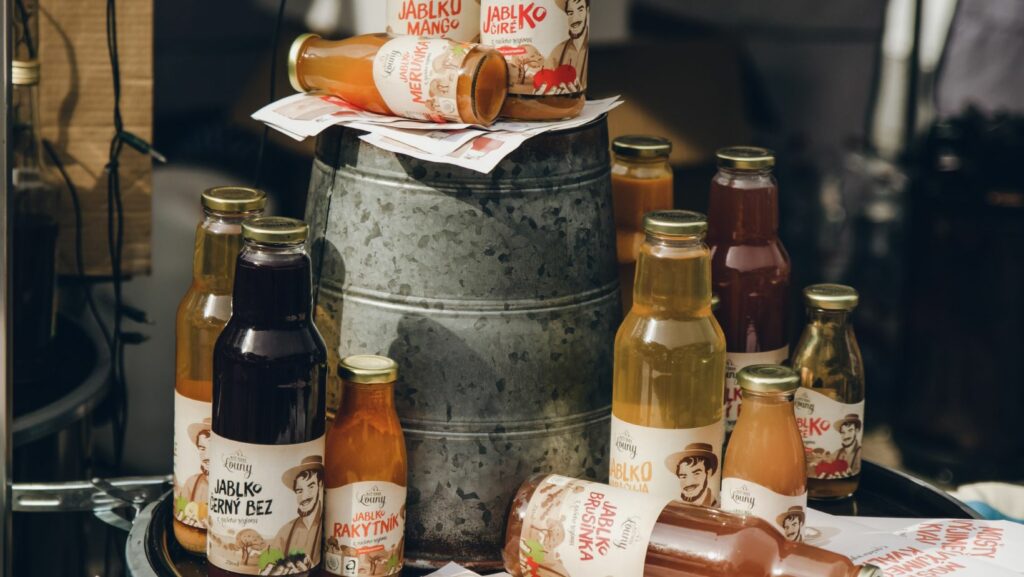
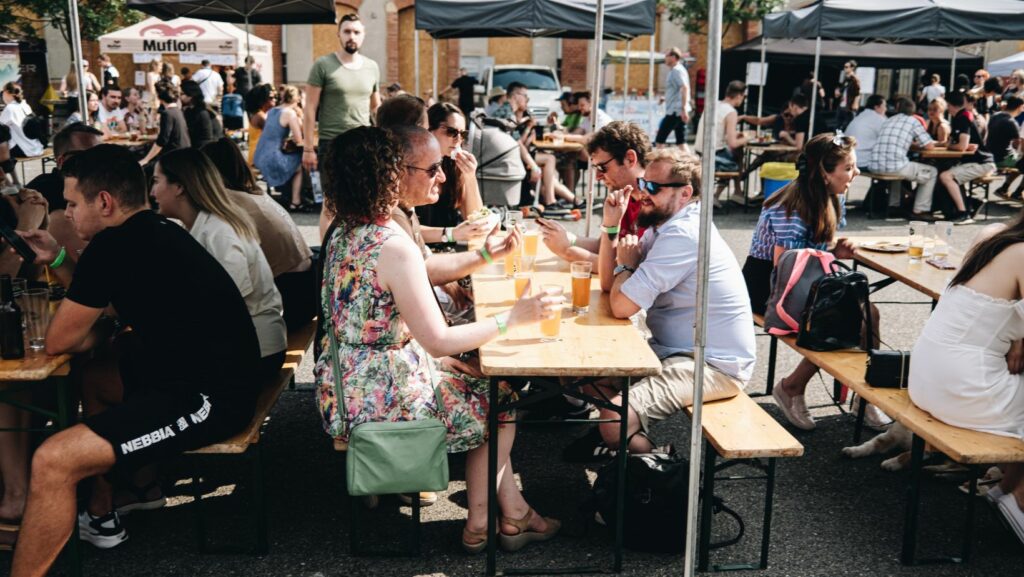
Flag carrier Air Montenegro plans to launch flights linking Podgorica to Switzerland’s Zurich, as well as the coastal town of Tivat to Prague.
Air Montenegro will operate three times a week the Podgorica-Zurich route, starting in April, while Tivat and Prague will be connected by direct flights twice a week from June, the company said in a statement on Friday.
Flights to Zurich will be available on Wednesday, Friday and Sunday as of April 8, whereas those to Prague will be operated on Tuesday and Saturday as of June 14, according to the company’s flight schedule.
About Air Montenegro
To Montenegro a.d (stylised as ToMontenegro and 2Montenegro), is the flag carrier of Montenegro, which is branded and operates under the name Air Montenegro, a new company opened in early 2021. Air Montenegro officially launched operations in June 2021.
About Tivat
Bobbing superyachts, a posh promenade and rows of swanky apartment blocks: visitors to Tivat could be forgiven for wondering if they’re in Monaco or Montenegro.
The erstwhile-mediocre seaside town has undergone a major makeover – courtesy of the multimillion-dollar redevelopment of its old naval base into a first-class marina – and while it bears no resemblance to anywhere else in the country, Tivat is now attracting the uberwealthy (and less-loaded rubberneckers) in droves.
The town has a reputation as being one of the sunniest spots in the Bay of Kotor. While Tivat will never rival Kotor for charm, it makes a pleasant stop on a trip around the bay, and is a useful base for exploring the Vrmac and Luštica Peninsulas.
Two weeks following the shutdown of restaurants and cafes, which can now only operate through takeaway and delivery services, about 43 percent of businesses have remained in business since mid-September.
Data from the cash register system provider, Dotykačka, shows that while sales from operating restaurants fell by about a fifth to a quarter, the overall decline in sales in the industry is about 70 percent.
According to Dotykačka, food companies operating through dispensing windows have a promising chance in avoiding bankruptcy. These include restaurants, bistros, and cafes, which have managed to remain partially open.
But despite the government’s decision to temporarily close all restaurants, Director of Dotykačka, Petr Menclík, said: “The revenues of these companies are not that much lower than in the normal regime. But the composition of what people buy has changed.”
He added: “While under normal circumstances, around 60 percent of turnover is food and 25 to 30 percent is alcoholic and non-alcoholic beverages. Food now accounts for 75 percent of sales and beverages account for only a tenth. This is logically reflected in the profit. The sellers have significantly higher margins on beverages.”
Since the recent closure of all social venues, companies have seen changes in their workload. Before the pandemic, restaurants were mostly busy around noon and in the evening. However, new reports suggest that customers now prefer to dine during the afternoon. According to Menclík, the sales curve is therefore significantly more balanced during the day.
With evening orders, Beer is sold slightly more with food, and sales of other drinks are minimal. Mencílek confirmed that restaurants offering take-out and delivery options are less impacted than bars and clubs. In fact, only five percent of clubs in the Czech Republic are partially opened for business.
Though the overall decline in the restaurant industry is caused mainly by the complete closure of more than half of the businesses, Menclík said that restaurants in operation must now weigh every expense.
Dotykačka is now offering restaurants and retailers a free order portal which can be found here.
More than 1,500 restaurants are registered on the portal, and over 2000 orders have been made through the online service in the past week.
Menclík said that the portal can also be used by businesses that use a cash register system from other companies. Dotykačka is also preparing to introduce online payment through the portal.
In the attempt to stop the spread of the coronavirus in the Czech Republic, a set of new restrictions were announced this month by the government.
Last week Minister of Health, Roman Prymula, took to his Twitter account to reveal the extra measures that would be imposed.
After one user asked on Twitter whether sex is still permitted, Prymula replied: “These activities are allowed, but only with a proven partner.”

This led many users to speculate on whether Prymula’s Twitter account was a parody account. However, the “new rule” was later confirmed on the same day in an interview with journalists.
Prior to this, the minister spoke about reducing the number of group gatherings and gave a British example where the current limit is set at six people in total. Prymula also mentioned that a milder option for the Czech Republic would be 10 to 20 people.
The sex restriction rule is already in the works in places such as the Netherlands and Manchester, UK. Despite a clear invasion of privacy, the British government has strongly advised people to participate in sexual relations “within one household.”
According to Monday’s news in the local press, the British public were told not to invite visitors to their homes or under any other pretext.
In the Czech Republic, a state of emergency is about to be declared again as hygienists claim that widespread masking of the population is probably not as helpful in stopping the spread.
Prymula, who had previously warned that leisure activities would be affected, will most likely present more information, given the growing number of people consuming alcohol in recent days.
Due to this, Prymula is determined to limit gatherings, potentially gymnastics and music concerts will also be cancelled.
New reports show that the decrease in beer consumption in the center of Prague has temporarily closed or significantly reduced the production of around 20 mini-breweries.
According to Jan Šuráň, President of the Czech-Moravian Association of Mini-Breweries, the ownership structure has also changed since the outbreak of the coronavirus pandemic by about 30 of these companies.
He said: “The crisis in the centers of tourist cities is just coming. Reserves have been depleted, state aid is not working and the decline in sales is still going on.”
He added: “The center of Prague is at 15 to 20 percent of the usual income in this period. Limiting opening hours will only deepen this situation but even without it, it would not be much better. Until there are tourists and as long as the frightened Czechs sit at home, nothing will change.”
Šuráň also warns that the restriction of celebrations or the cancellation of company parties is only a nail in the coffin of a Czech pub.
There were no further comments on the names of the breweries, which had to close following new government measures in connection with the coronavirus.
Restaurants and bars have been advised to shut their premises at 22:00 from Thursday, and the measure is to be in force for up to two weeks. The Minister of Health Roman Prymula confirmed the announcement on Tuesday. He said: “Under the influence of alcohol in restaurants and bars, people are more in touch and do not keep their distance.”
Other emergency measures will include hairdressing and barbering. Though it is confirmed that hair salons will not be closed, they will however receive additional operating instructions.
